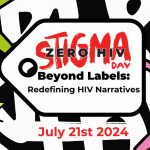Worldwide, the health and well-being of adolescents is increasingly threatened by risky sex, while funds to counteract this effect are woefully inadequate. The Lancet Commission has published in The Lancet a report on the health of those 10 to 24 years old finding that two thirds of young people live in countries where health challenges such as HIV, early pregnancy, risky sex, depression, injury and violence pose a persistent threat to them.
Among these challenges, risky sex has been the fastest-growing threat to 15- to 19-year-olds’ health for the past 23 years, rising from 13th place in 1990 to 2nd place in 2013.
“Inconsistent, irrational laws have a negative impact on adolescent health,” Terry McGovern, a professor of population and family health at the Columbia Mailman School of Public Health and one of the commissioners of the report, said in a press release. “In many countries, married female adolescents can access contraception, while the unmarried cannot. These are irrational inconsistencies which result in bad health outcomes.”
The report’s authors stated that the best bang for the buck for improving the health of young people is providing access to quality secondary education. For each year that individuals are educated past the age of 12 there is an association with lower births among adolescent girls and fewer deaths among both boys and girls.
Of all age groups, the world’s 1.8 billion adolescents, 89 percent of whom live in developing nations, have the poorest health care coverage. The report stresses the importance of access to health care for this group.
To read an abstract on the report, click here.







Comments
Comments